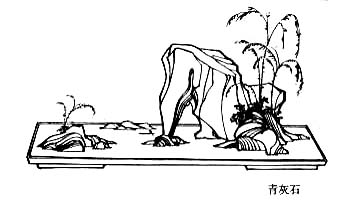Shi Jing 
 – Le Canon des Poèmes
– Le Canon des Poèmes
Le plus ancien recueil connu de poésie chinoise, plus de trois cents chansons, odes et hymnes. Tr. Legge (en) et Granet (fr, incomplète).
Shijing IV. 3. (290)
They clear away the grass and the bushes ;
And the ground is laid open by their ploughs.
In thousands of pairs they remove the roots,
Some in the low wet lands, some along the dykes.
There are the master and his eldest son ;
His younger sons, and all their children ;
Their strong helpers, and their hired servants.
How the noise of their eating the viands brought to them resounds !
[The husbands] think lovingly of their wives ;
[The wives] keep close to their husbands.
[Then] with their sharp plough-shares,
They set to work on the south-lying acres.
They sow their different kinds of grain,
Each seed containing in it a germ of life.
In unbroken lines rises the blade,
And well-nourished the stalks grow long.
Luxuriant looks the young grain,
And the weeders go among it in multitudes.
Then come the reapers in crowds,
And the grain is piled up the fields,
Myriads, and hundreds of thousands, and millions [of stacks] ;
For spirits and for sweet spirits,
To offer to our ancestors, male and female,
And to provide for all ceremonies.
Fragrant is their aroma,
Enhancing the glory of the State.
Like pepper is their smell,
To give comfort to the aged.
It is not here only that there is this [abundance] ;
It is not now only that there is such a time : –
From of old it has been thus.
Legge 290

Le Canon des Poèmes – Shi Jing IV. 3. (290) – Chinois off/on – Français/English
Alias Shijing, Shi Jing, Book of Odes, Book of Songs, Classic of Odes, Classic of
Poetry, Livre des Odes, Canon des Poèmes.
Le Canon des Poèmes, Les Entretiens, La Grande Étude, Le Juste Milieu, Les Trois Caractères, Le Livre des Mutations, De la Voie et la Vertu, 300 poèmes Tang, L'Art de la guerre, Trente-six stratagèmes
Bienvenue, aide, notes, introduction, table.
Index – Contact – Haut de page
